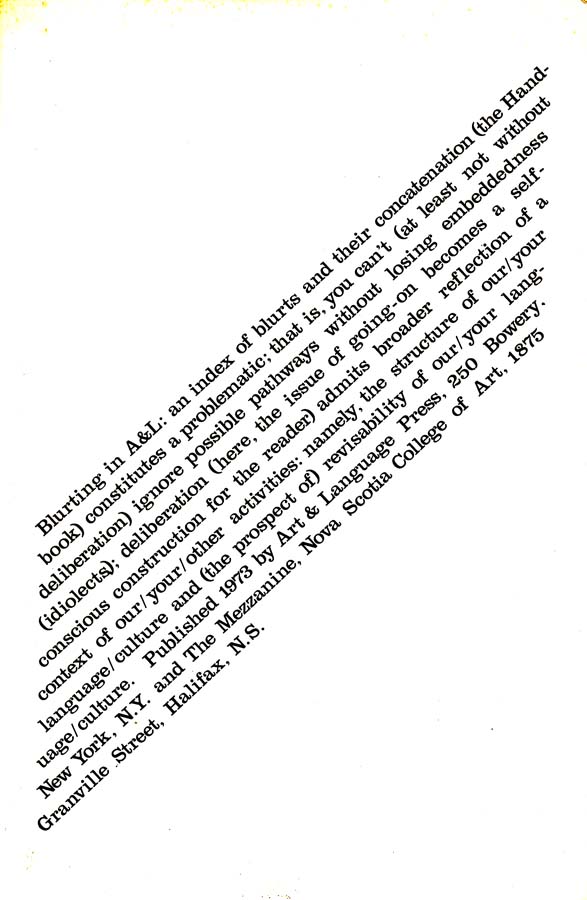Michael Hardt, Antonio Negri: Assembly (2017)
Filed under book | Tags: · activism, assembly, autonomy, colonialism, commons, democracy, entrepreneurship, finance, labour, multitude, neoliberalism, organization, politics, protest, social movements, subjectivity

“In recent years ‘leaderless’ social movements have proliferated around the globe, from North Africa and the Middle East to Europe, the Americas, and East Asia. Some of these movements have led to impressive gains: the toppling of authoritarian leaders, the furthering of progressive policy, and checks on repressive state forces. They have also been, at times, derided by journalists and political analysts as disorganized and ineffectual, or suppressed by disoriented and perplexed police forces and governments who fail to effectively engage them. Activists, too, struggle to harness the potential of these horizontal movements. Why have the movements, which address the needs and desires of so many, not been able to achieve lasting change and create a new, more democratic and just society? Some people assume that if only social movements could find new leaders they would return to their earlier glory. Where, they ask, are the new Martin Luther Kings, Rudi Dutschkes, and Stephen Bikos?
With the rise of right-wing political parties in many countries, the question of how to organize democratically and effectively has become increasingly urgent. Although today’s leaderless political organizations are not sufficient, a return to traditional, centralized forms of political leadership is neither desirable nor possible. Instead, as Michael Hardt and Antonio Negri argue, familiar roles must be reversed: leaders should be responsible for short-term, tactical action, but it is the multitude that must drive strategy. In other words, if these new social movements are to achieve meaningful revolution, they must invent effective modes of assembly and decision-making structures that rely on the broadest democratic base. Drawing on ideas developed through their well-known Empire trilogy, Hardt and Negri have produced, in Assembly, a timely proposal for how current large-scale horizontal movements can develop the capacities for political strategy and decision-making to effect lasting and democratic change. We have not yet seen what is possible when the multitude assembles.”
Publisher Oxford University Press, 2017
Heretical Thought series
ISBN 9780190677961, 0190677961
xxii+346 pages
Reviews: Publishers Weekly (2017), Christian Fuchs (triple-C, 2017).
Comment (0)Franco Berardi: Contro il lavoro: lo sviluppo al capitale il potere agli operai (1970) [Italian]
Filed under book | Tags: · autonomy, capitalism, ideology, labour, work

“Questo lavoro vuole essere un primo tentativo di costruire sia pure in modo tutto provvisorio, tutto legato alla insorgenza di nuove possibilità ed indicazioni anche teoriche, una impostazione che, partendo dal punto di vista capitalistico, dalla demistificazione dell’ideologia, della scoperta, al di sotto dell’ideologia, dello sviluppo reale del capitale, giunga a decifrare in termini di progetto strategico l’emergenza dei livelli di composizione operaia.
Tutto quello che vi è in questo saggio manifesta la sedimentazione progressiva di ipotesi e linee teoriche legate a situazioni che oggettivamente crescono: e non si può fissare un livello in modo astratto, come ottimale; ma la linea strategica, per non trasformarsi in ideologia, va vista come articolazione teorica del livello pratico delle lotte, che cresce col loro crescere, e non si ferma e fissa ad un livello ottimo. In questo senso i dislivelli (percepibili persino nel linguaggio) rappresentano la crescita di un discorso come articolazione teorica della crescita pratica delle lotte dell’autonomia, dell’organizzazione.”
Publisher Edizioni della Libreria, Milan, 1970
161 pages
via Silvio
PDF (30 MB)
Internet archive (version cleaned by Grafton9, added on 2017-9-6)
Blurting in A & L [Art & Language] (1973/2002) [English/German]
Filed under book | Tags: · ambiguity, anthropology, art, art criticism, art system, autonomy, conceptual art, experience, ideology, knowledge, language, learning, mapping, philosophy, theory, translation, work

Blurting in A & L is a printed booklet whose content is a dictionary with blurts or ‘annotations’. The annotations were written by the members of Art & Language Ian Burn, Michael Corris, Preston Heller, Joseph Kosuth, Andrew Menard, Mel Ramsden and Terry Smith.
“The project began as a collaboration among Art & Language members in New York City. In weekly meetings from January to July 1973, eight participants produced written statements called ‘annotations’ or ‘blurts’ on topics ranging from the ordinary to the abstruse (art, learning, ambiguity, heuristics, stimulus-meaning). In each subsequent meeting the group would return with new statements that ‘went on’ from the last week’s annotations. In the end, through the efforts of Michael Corris and Mel Ramsden the comments were compiled in a handbook. In all, some 400 odd entries were edited and grouped according to subheadings with vague quasi-logical connectors linking them to one another.
Since the connections among the entries were many-to-many, readers could choose their own course through the material, which blurred the boundary between passive reader and active participant. This was a key ideology of Art & Language – the idea that membership was permeable or, as one participant put it, ‘a function of participation’.” (from a commentary by Chris Gilbert, Mute, 2002)
An online version installed by ZKM, Karlsruhe, in 2002 includes articles which contextualize Blurting in A & L within the activities of the group in the 1970s. Present and former members of Art & Language (Michael Baldwin, Michael Corris, Philip Pilkington, Mel Ramsden) summarize and reflect on their activities. Thomas Dreher embeds Blurting in A & L within the proceedings of the discourse of Art & Language.
Blurting in A&L: An Index of Blurts and Their Concatenation (the Handbook) Constitutes a Problematic; That Is, You Can’t (at Least Not Without Deliberation) Ignore Possible Pathways Without Losing Embeddedness (Ideolects); Deliberation (Here, the Issue of Going-On Becomes a Self-Conscious Construction for the Reader) Admits Broader Reflection of a Context of Our/Your/Other Activities: Namely, the Structure of Our/Your Language/Culture and (the Prospect of) Revisability of Our/Your Language/Culture
Edited by Michael Corris, Mel Ramsden
Publisher Art & Language Press, New York, and The Mezzanine, Nova Scotia College of Art, Halifax, 1973
92 pages
Online version and accompanying publication edited by Thomas Dreher, 2002.
Announcement of the hypertext version (Syndicate, 2002)
Blurting in A & L (1973, HTML)
Blurting in A & L Online (English, 2002, HTML)
Blurting in A & L Online (German, 2002, HTML)

